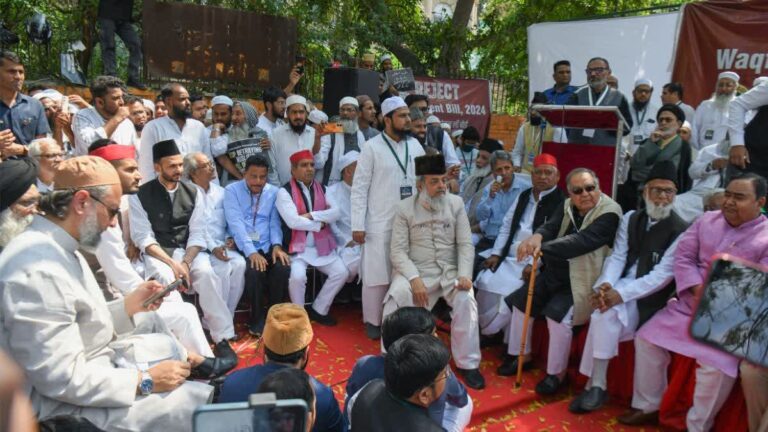The Battle of Badr Islam’s Historic Victory

The Battle of Badr, fought on March 13, 624 CE (17th Ramadan, 2 AH in the Islamic calendar), was a defining moment in early Islamic history. It was the first major military confrontation between the newly established Muslim community in Medina, led by Prophet Muhammad (peace be upon him), and the powerful Quraysh tribe of Mecca. Despite being vastly outnumbered, the Muslim forces secured a decisive victory, reinforcing their faith and solidifying their presence in the Arabian Peninsula. This battle is remembered not just as a military triumph but as a pivotal event that shaped the course of Islam.
Background and Causes of the Battle
The tensions leading to the Battle of Badr stemmed from years of persecution faced by Muslims in Mecca, which ultimately forced them to migrate to Medina in 622 CE (the Hijra). Although the Muslims had settled in their new home, hostilities with the Quraysh persisted. The immediate cause of the battle was economic: the Muslims planned to intercept a lucrative Meccan trade caravan led by Abu Sufyan, which was returning from Syria with goods essential to the Quraysh’s wealth.
Realizing the danger, Abu Sufyan changed his route and sent word to Mecca, seeking reinforcements. In response, the Quraysh assembled a formidable army of around 1,000 warriors, including many of their strongest fighters, to confront the Muslims. Prophet Muhammad (PBUH) gathered a small force of 313 men, with limited resources: only two horses and 70 camels. Despite the overwhelming odds, the Muslims were prepared to fight for their survival and faith.
The Course of the Battle
The two armies met at Badr, near a series of wells southwest of Medina, a strategically important location. Prophet Muhammad (PBUH) displayed remarkable military acumen by securing control of the water sources, limiting the Quraysh’s access.
The battle commenced with the traditional Arabian practice of single combat. Three warriors from each side engaged in duels, with the Muslim champions – Ali ibn Abi Talib, Hamza ibn Abdul Muttalib, and Ubayda ibn al-Harith – emerging victorious. This initial success boosted the morale of the Muslim army.
As the full battle erupted, the Muslims, despite their numerical disadvantage, displayed exceptional discipline and resilience. According to Islamic tradition, divine intervention played a role in their victory, as described in the Quran (Surah Al-Anfal 8:17): “You did not kill them, but it was Allah who killed them.” By the end of the battle, around 70 Quraysh fighters, including their leader Abu Jahl, had been killed, and another 70 were taken as prisoners. In contrast, the Muslims lost only 14 men, who are revered as martyrs in Islamic history.
The Impact and Significance of the Victory
The Battle of Badr had far-reaching consequences for the young Muslim community and the broader Islamic movement:
- Strengthened the Muslim Community: The victory at Badr significantly boosted the morale of Muslims and solidified Prophet Muhammad’s (PBUH) leadership. It reassured his followers that their faith in Islam and their sacrifices were not in vain.
- Weakened the Quraysh’s Influence: The loss at Badr severely damaged the reputation of the Quraysh, who had previously been regarded as invincible. Their political and economic power in Arabia began to wane.
- Established Islam as a Political Force: Until Badr, Islam was primarily seen as a spiritual movement. The battle demonstrated that the Muslims were a formidable political and military entity, capable of defending themselves and influencing regional affairs.
- Set the Stage for Future Battles: The Quraysh sought revenge, leading to further conflicts such as the Battle of Uhud (625 CE) and the Battle of the Trench (627 CE). However, the eventual conquest of Mecca in 630 CE can be traced back to the momentum generated by the victory at Badr.
- Religious and Cultural Significance: Badr is commemorated annually by Muslims as a moment of divine support and unwavering faith. The 14 fallen Muslims are honored as martyrs, and the battle remains a symbol of perseverance against adversity.
Badr’s Legacy in the Modern Era
Even today, the Battle of Badr is remembered as a powerful lesson in faith, resilience, and strategic thinking. It continues to inspire Muslims worldwide, serving as a reminder that belief, unity, and determination can overcome even the most daunting challenges. Events commemorating the battle, such as the gathering at Aali Masjid Eidgah in Srinagar on March 18, 2025, where Mirwaiz Umar Farooq honored its martyrs, highlight its enduring significance.
The Battle of Badr was more than just a military victory; it was a turning point that paved the way for Islam’s expansion and the eventual establishment of a unified Muslim state. Its lessons remain relevant, reminding believers of the power of faith, justice, and perseverance in the face of adversity.
You Might Also Like:
Militant Killed, Policeman Injured in Handwara Encounter
J&K High Court Quashes PSA Detention of Advocate Nazir Ahmad Ronga
Japanese Adult Film Star Kae Asakura Converts to Islam After Trip to Malaysia
71-Year-Old Abdul Karim Found Dead with Gunshot in Reasi’s Tanda Area





